Tihar Festival, The Festival of Lights
Embrace the luminous charm of Tihar/Diwali, the paramount Festival of Lights in Nepal. Coming second only to Vijaya Dashami (Dashain), the acclaimed Festival of Colors, Tihar illuminates every corner of Nepal with joy and reverence. Often recognized by various names such as Bhai Tika, Diwali, Dipawoli, and Laxmi Puja, this radiant celebration is not just about brightness but also emblematic of the deep-rooted brotherhood and sisterhood in the Nepali culture.
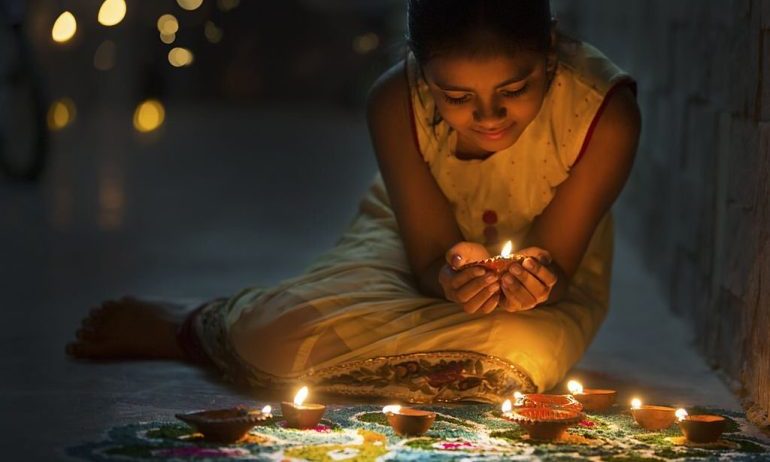
Spanning five days, Tihar is a time of gratitude, where Nepalese pay homage to animals like crows, dogs, and cows, seeing them as divine symbols of prosperity, and also honor the Goddess of Wealth and Govardhan/Ox.
Marked in the month of Kartik, as per the Nepali calendar, this year's Tihar festivities will light up the nation from 11th November to 16th November 2023.
How is the Tihar/Deepawali festival celebrated in Nepal?
Tihar/Deepawali, a Festival of Lights, is a remarkable occasion in Nepal, standing second only to the Dashain festival in terms of grandeur and significance. Spanning five days, Tihar radiates the Nepali landscape with vibrant colors, shimmering lights, candles, and an array of festive activities and rituals.
The festival commences with the worship of crows, regarded as "the messengers of death". This is followed by the second day, dedicated to the veneration of dogs, perceived as "the guardians of the god of death". As Tihar progresses, the third day illuminates the land with adoration for Laxmi, the goddess of wealth and luck, with homes gleaming in her honor. The fourth day is a heartfelt tribute to cows, while the fifth and final day, known as Bhai Tika, underscores the bond of love and care between brothers and sisters. Sisters anoint their brothers' foreheads with a tika made of seven colors, symbolizing protection and prosperity. In return, brothers shower their sisters with gifts and monetary tokens of love.
One of Tihar's most delightful aspects is the culinary spectacle. Homes resonate with the aroma of various festive dishes. Streets and homes come alive with gleaming lights, vibrant rangolis, and floral decorations. Communities bond over Deusi Bhailo, a unique festive tradition encompassing dance, song, and music, celebrating the essence of Tihar. Each day of Tihar is steeped in myths, legends, and beliefs that add to the festival's charm and significance
Day 1: Kagh Tihar
The commencement of Tihar is marked by Kagh Tihar, a day dedicated to the crows. Regarded as harbingers, crows are often associated with omens, specifically as bearers of unsettling news or messages. On this day, households throughout Nepal prepare offerings of rice and other delicacies to appease and honor these birds. Accompanying these food offerings are Tika and flowers, symbolizing respect and veneration. The underlying belief is that by worshiping crows and ensuring their contentment, one can potentially ward off any impending misfortunes or bad messages in the future. This gesture embodies the essence of Tihar – fostering harmony and paying homage to all creatures, big or small, as part of the universe's grand tapestry.
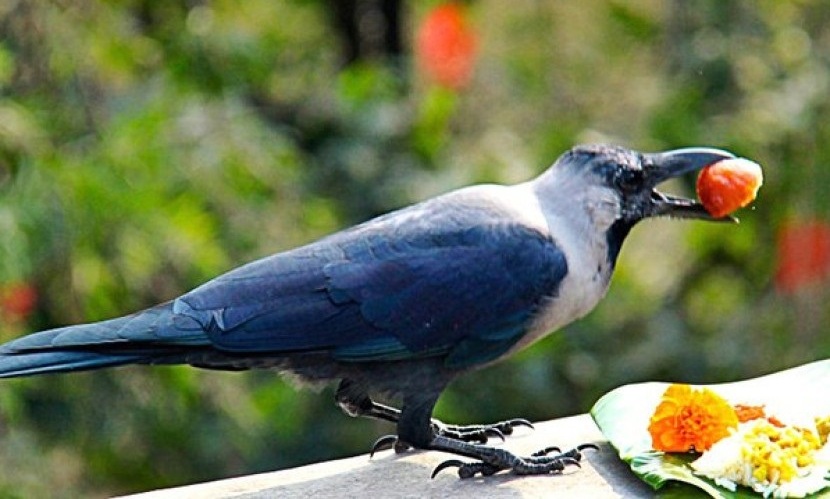
Day 2: Kukur Tihar
The second day of Tihar, named Kukur Tihar, is a heartwarming tribute to dogs, these loyal and steadfast companions of humans. In Nepali culture, dogs are not just beloved pets; they hold a profound spiritual significance. Seen as sacred messengers and guides, they are believed to shepherd souls to the afterlife and ensure their safe passage to heaven. On this day, dogs are celebrated and pampered. They are treated to sumptuous meals, adorned with a vibrant tika on their foreheads, and draped with garlands around their necks, symbolizing their revered status. Drawing from ancient beliefs, dogs in Nepal are often referred to as the "gatekeepers of death." They are entrusted with the solemn responsibility of leading departed souls across the river of death, ensuring their transition to the otherworld. Kukur Tihar is a reflection of Nepal's deep-rooted respect for all living beings and an acknowledgment of the intricate bond shared between humans and animals
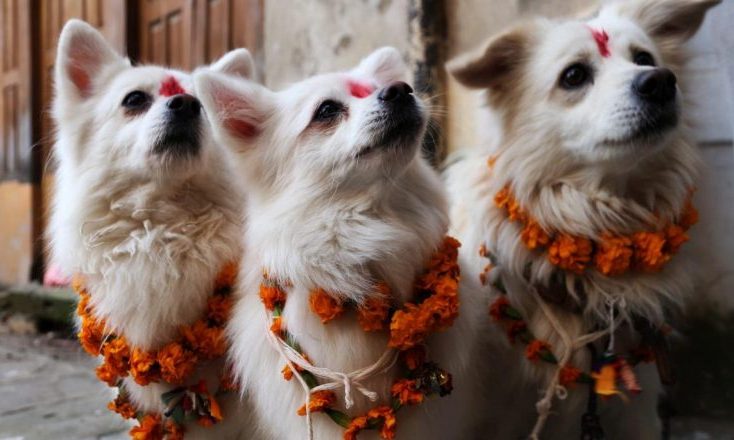
Day 3: Laxmi Puja
The third day of Tihar unfolds as Laxmi Puja, an event steeped in devotion and splendor. Honoring both the revered cows and the cherished Goddess Laxmi - the divine embodiment of wealth and prosperity - this day stands out in Nepal's festival calendar.
The morning witnesses the sanctification of cows. These animals, integral to Nepal's agrarian culture and considered Laxmi's earthly embodiment, are adorned with a radiant red tika on their foreheads and draped in ornate garlands, emphasizing their sanctity in Nepalese traditions.
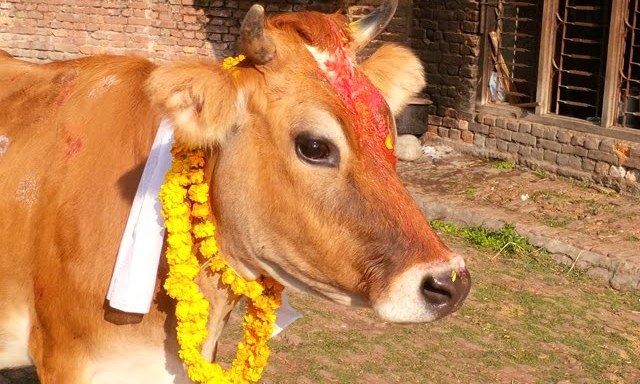
However, as nightfall approaches, a transformative luminance engulfs homes, streets, and commercial spaces like offices, cafes, and shops. Strings of twinkling lights, the soft glow of candles, and the traditional diyo (oil lamps) come together in a harmonious ballet of light. This isn't merely a visual treat. The purpose runs deeper: to beckon Goddess Laxmi into one's abode, ensuring a year filled with prosperity and abundance. This radiant endeavor truly underscores the essence of Tihar, as observed by Luxury Holiday Nepal.
Echoing alongside this brilliance is the melodic cadence of Bhailo. Children and young adults, resplendent in their festive attire, meander through neighborhoods. They regale residents with traditional songs, dances, and blessings. Their performances, reminiscent of Nepal's rich cultural tapestry, are rewarded with money, delectable treats, fruits, and occasionally, thoughtful gifts.
In sum, Laxmi Puja is more than just a festival; it's a heartfelt expression of reverence, gratitude, and communal harmony, showcasing the best of what Luxury Holiday Nepal has to offer in terms of cultural experiences
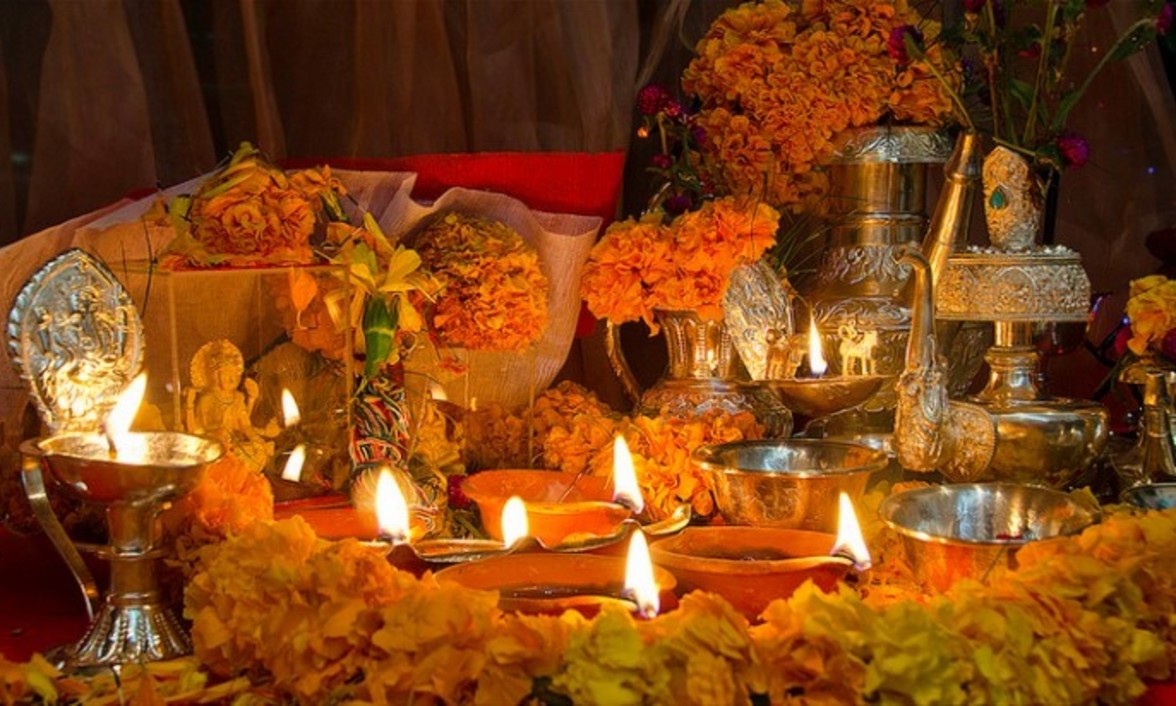
Day 4: Govardhan Puja
The fourth day of Tihar, known as Govardhan Puja, is a multifaceted celebration in Nepal. As part of the Yama Panchak, farmers show gratitude to their oxen, indispensable allies in agriculture. These hardworking animals are honored with delicious meals and a revered tika on their foreheads. This day also resonates with significance for the Newari community, the ancient inhabitants of Kathmandu. They come together for the unique Mha Puja, a ritual of self-worship, emphasizing their cultural identity and seeking blessings for personal well-being.
Diversifying the day's observances is the veneration of the mighty Hanuman, a central figure in Hindu mythology. With ceremonies like Goru Puja and Gobhardhan Puja, the essence of this day revolves around health, prosperity, and positivity. As the sun sets, the festive spirit is elevated by the Deusi program. This tradition, akin to Bhailo, sees groups of boys touring neighborhoods, sharing joy through songs and dances. Their performances not only entertain but also invite blessings and gifts from households. This vibrant day exemplifies the rich cultural heritage that is keen to share with the world
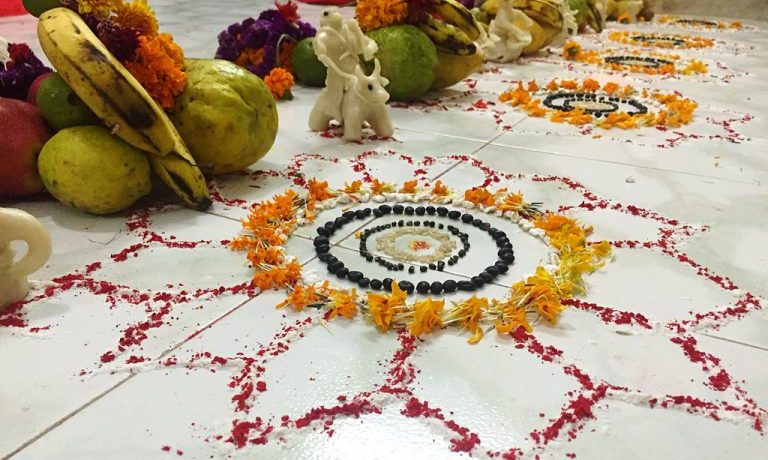
Day 5: Bhai Tika: Celebrating the Bond of Siblings
The culmination of the Tihar festival is marked by Bhai Tika, a heartfelt celebration of the cherished relationship between brothers and sisters. On this significant day, sisters apply a vibrant seven-colored tika on their brothers' foreheads as a symbol of protection and affection. Accompanying the tika is a beautiful garland, draped around their necks, exemplifying the bond of love and care. This gesture is not just a ritual but a poignant moment that solidifies the bond, with sisters praying fervently for their brothers' longevity, well-being, and prosperity.
In this heartfelt exchange, brothers reciprocate the love. They adorn their sisters with a tika and express their gratitude and affection by offering gifts, money, and heartfelt blessings. This tradition is more than just an exchange of gifts; it's a reaffirmation of the unique bond that siblings share. Through Bhai Tika, the Tihar festival encapsulates the essence of family, love, and unity that seeks to introduce to its travelers.
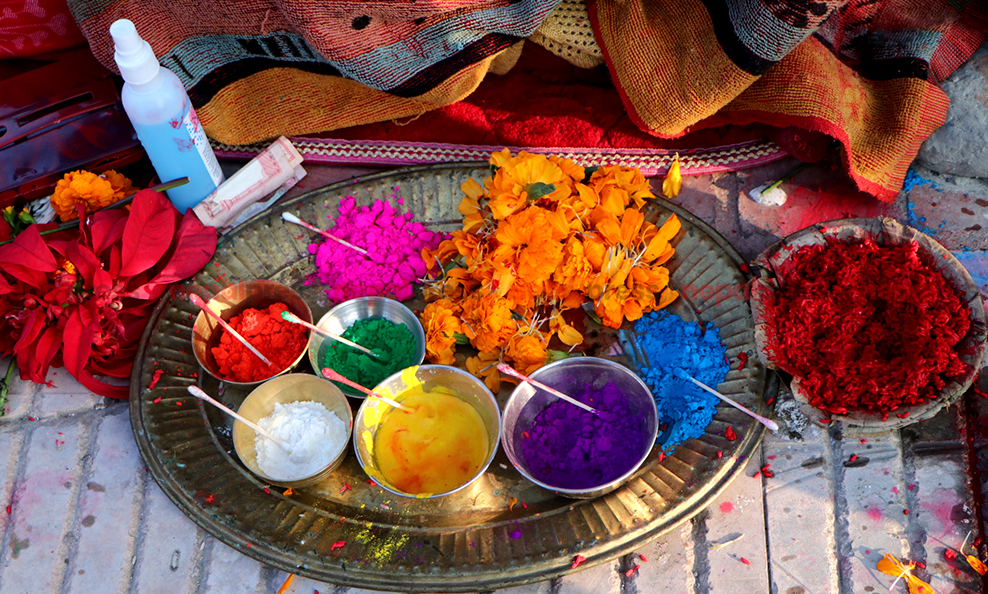
Nepal's Tihar festival is a radiant tapestry of joy and togetherness. Spanning several days, the festival ushers in a carnival of colors, lights, and cultural performances. From the second day onwards, the vibrant tradition of Deusi-Bhailo is brought to life by children, youth, and various ethnic groups who go door-to-door, singing, dancing, and spreading festive cheer. As evening approaches, the Kathmandu Valley transforms into a mesmerizing canvas of lights. The shimmering glow from candles, oil lamps, and fairy lights juxtaposed with the beauty of floral decorations makes for an unforgettable visual treat.
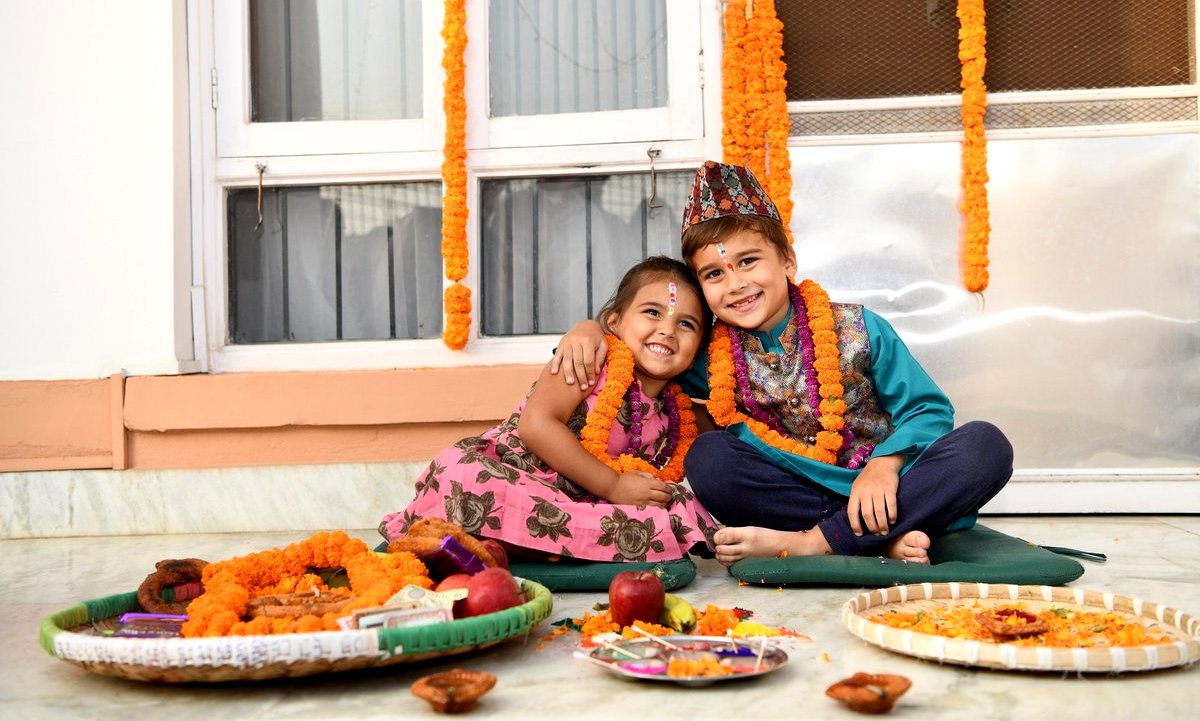
Beyond the aesthetics, Tihar is also a time for revelry. Locals indulge in friendly games of cards, gamble responsibly, and enjoy gatherings that echo with laughter and camaraderie. This festival brings out the essence of Nepal's culture — an amalgamation of vibrant traditions, delectable sweets, and heartfelt connections. And for those yearning to be part of this grand celebration, to immerse in the infectious energy, and to relish the rich culinary delights of the season, Luxury Holidays Nepal invites you. Join us, and let's celebrate Tihar together, exploring the heart and soul of Nepalese festivities
If you need any further information, please contact us, Email: [email protected], Phone: +977- 985 100 5129 (WhatsApp)
#Tags
Tripadvisor
5.0959 reviewsGoogle
4.8114 reviewsFacebook
4.1 recommend44 ReviewsTrustpilot
4.1 Great(5 reviews)- Trusted by50K plus traveller




